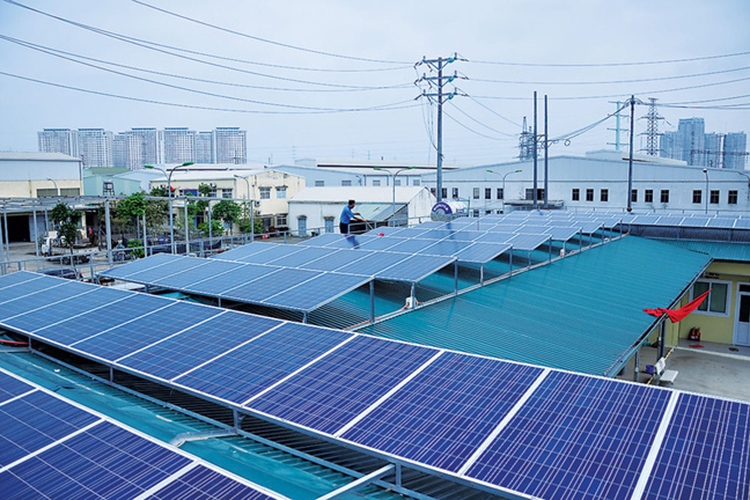Investors in solar energy projects are racing to begin operations before June 30, 2019, to qualify for incentives offered by the Government.

Opportunities to invest in the solar energy sector have become abundant after Prime Minister Nguyen Xuan Phuc issued a decision to encourage the development of the sector last year.
Under Decision 11/2017/QĐ-TTg, which took effect in June last year, power generated by solar projects will be paid 9.3 cents/kWh (VND2,086) for 20 years, a profitable rate for investors.
The price could change for operators going on stream after June 30 next year.
Similarly, investors signing power selling contracts with the Vietnam Electricity Corporation until that date will be eligible for various incentives related to land, capital and import and corporate taxes.
According to the Ministry of Industry and Trade’s electricity and renewable energy department, as of the end of last June 100 major solar energy projects with a total capacity of 4.7 GW by 2020 had been licensed.
Besides, generation of 11.55MW of rooftop solar energy has also been approved.
The central provinces of Ninh Thuận and Bình Thuận, the southern provinces of Tây Ninh and Long An and the Central Highlands province of Đắk Lắk offer the best locations for solar energy with few rainy days and many sunny days in a year.
In Ninh Thuận, for instance, the number of hours of sunshine in a year is 2,800 and the radiation is equivalent to 1,800kWh/m2 in a year.
The Trung Nam Group plans to invest VND5 trillion (US$218 million) to set up a 204MW solar plant in Thuận Bắc District in Ninh Thuận.
It is expected to become operational by June 2019 and supply 450 million kWh of power a year to become one of the most important energy projects in the country.
CMX Renewables with Singaporean partner Sunseap will set up a 168MW plant at a cost of VND 4.4 trillion (US$192 million).
In Bình Thuận, solar energy capacity is expected to rise to 4,755MW by 2030 and the plants are expected to cost VND110 trillion (US$4.8 billion) to build.
The province has licensed 15 projects.
In Tây Ninh, Xuân Cầu Group and Thailand’s B.Grimm Company have invested US$420 million to set up a 420MW solar energy plant.
In Long An, Bamboo Capital Investment Fund has joined hands with Korea’s Hanwha to build a 100MW plant, and in Đắk Lắk, three projects with a total capacity of 3,367MW have been approved in Ea Súp District.
According to the national renewable energy development strategy for 2030, solar power will increase from 10 million kWh in 2015 to 1.4 billion kWh in 2020 and 35.4 billion kWh in 2030.
Difficulties
In one year after Decision 11/2017/QĐ-TTg and guidance circulars were issued, many major solar projects have been proposed.
However, they face many hurdles due to lack of clarity over tax provisions, connectivity with the grid and relationship between power sellers and buyers, especially in the case of rooftop solar energy.
Investors wanted related authorities to soon put in place the complete mechanism and link them with the grid system to avoid wastage since numerous projects are likely to go on stream at the same time before next June.
VNS


